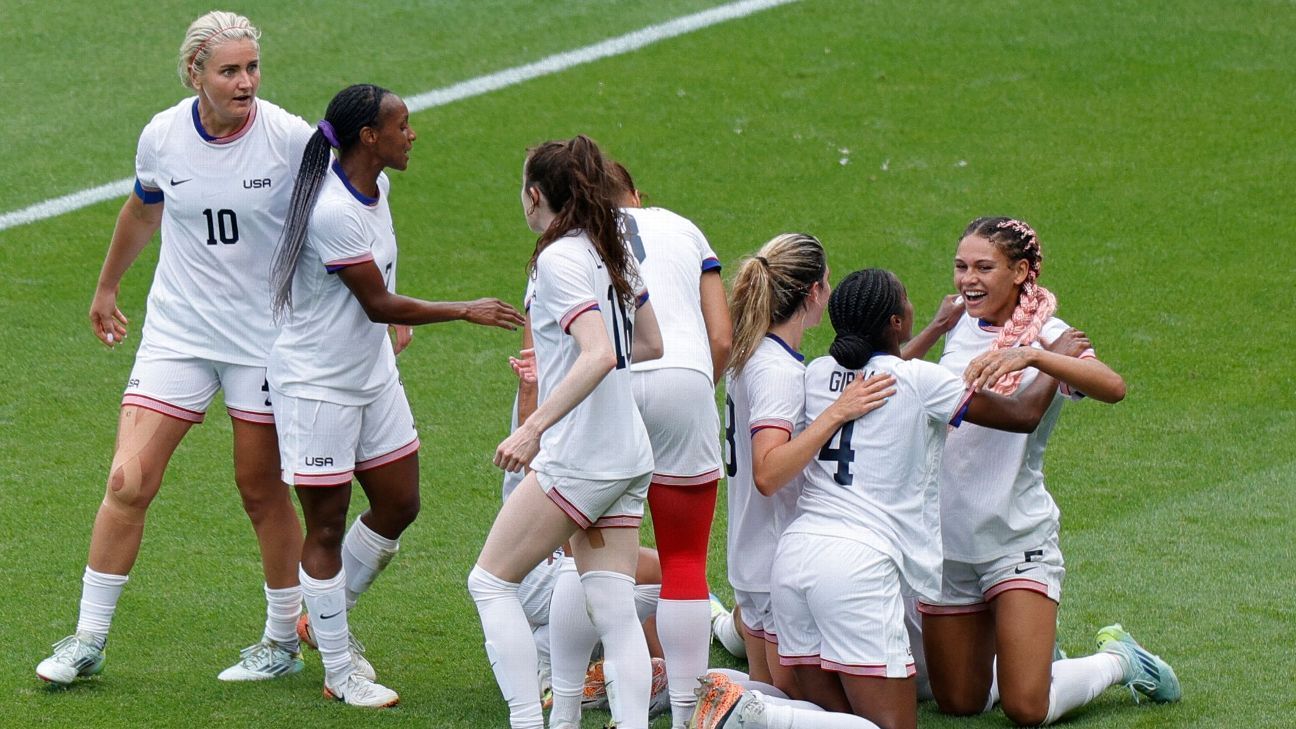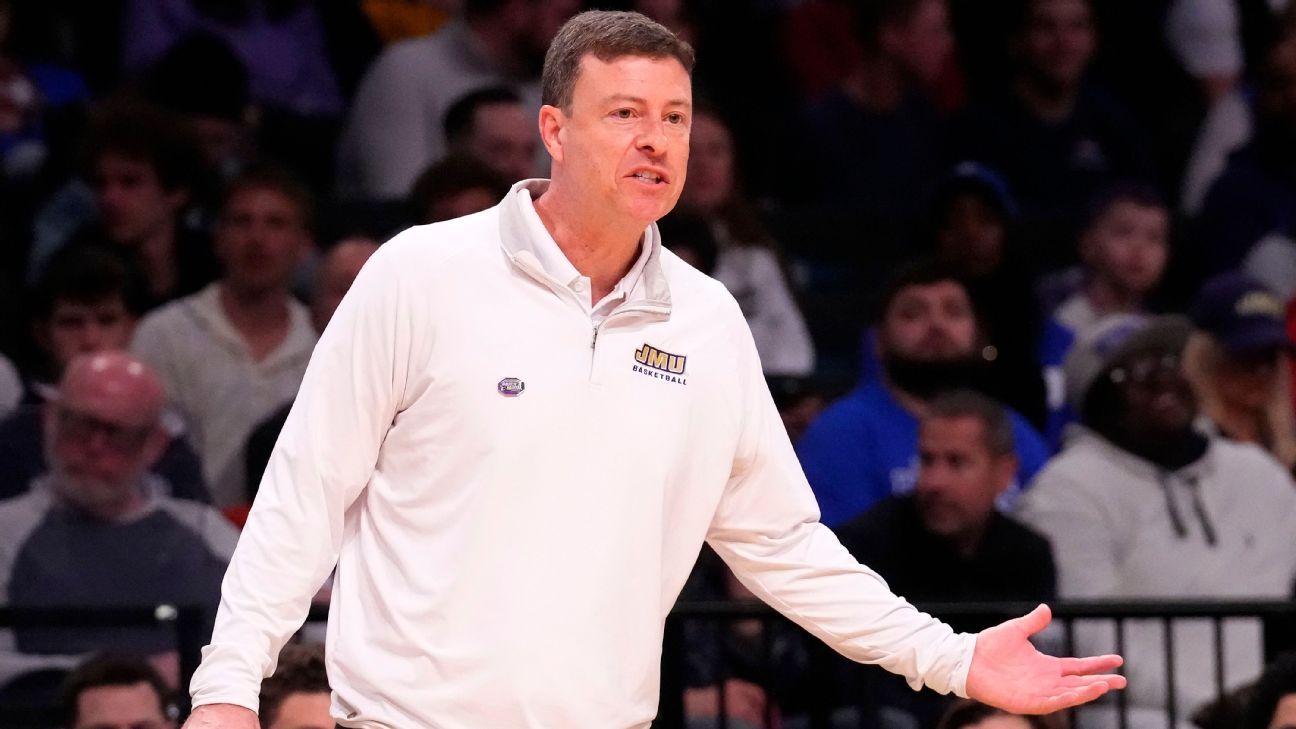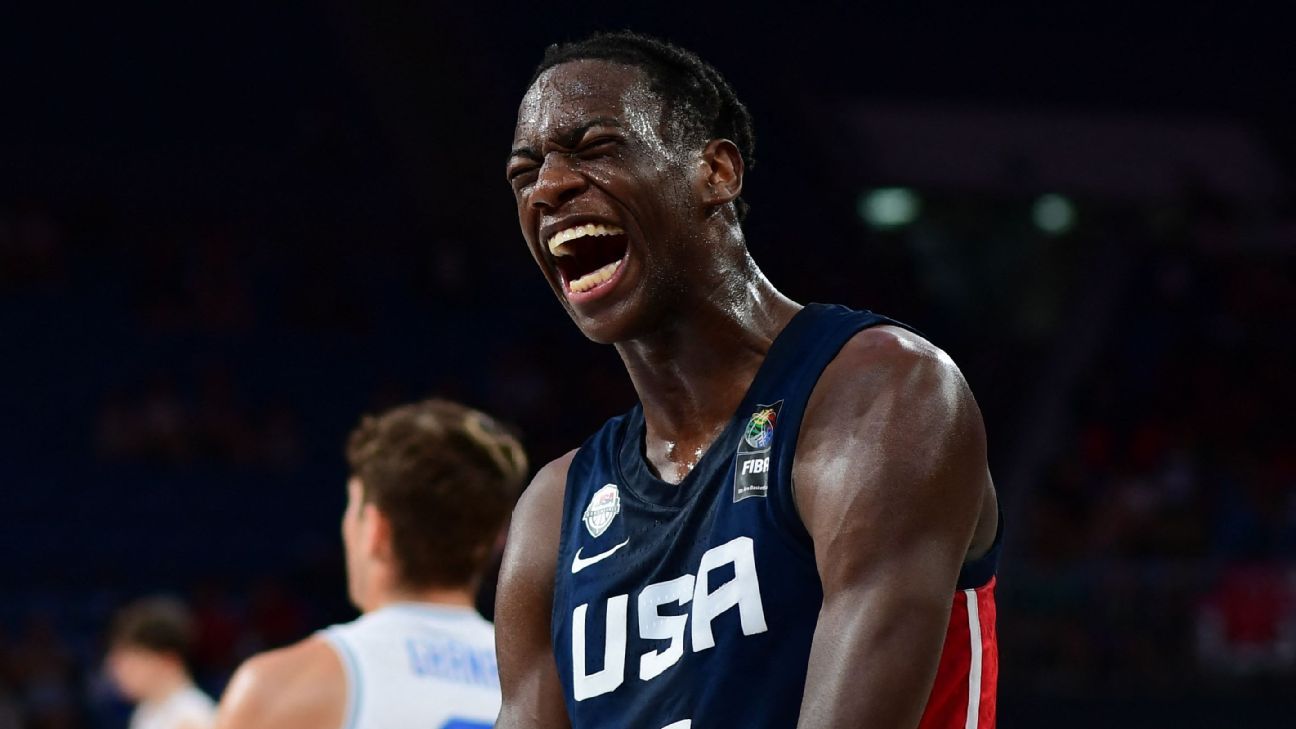PARIS — After a long, hot, exhausting afternoon of frustration, Trinity Rodman took the ball, moved to her left and unleashed a brilliant laser when the U.S. women's national team needed it most.
Rodman's powerful shot from a tight angle rattled the net in the 106th minute, sending the crowd (including U.S. women's national team legend Megan Rapinoe) into hysterics as the white jerseys of the 22-year-old's teammates piled up on her.
It was a stunning goal, and one that proved to be the difference in the U.S.'s 1-0 victory over Japan in a tense quarterfinal at the Parc des Princes on Saturday, meaning the Americans will now face either Canada or Germany in the semifinals on Tuesday in Lyon.
“It was the best moment of my career,” Rodman said afterward. “I couldn't have asked for anything better.”
The win guarantees the U.S. a chance to contend for a medal, no small feat after a disappointing exit in the round of 16 at the Women's World Cup last summer, but for much of Saturday's match, it looked like the Americans weren't going to advance. They struggled to unlock a disciplined, regimented and stifling Japanese defensive posture, but found a little magic just before the overtime break.
Crystal Dunn started the decisive play with a cross that allowed Rodman to break through down the wing. She made her way into the box, beat Hikaru Kitagawa and unleashed a powerful left-footed shot past the helpless dive of Ayaka Yamashita.
It was the last goal scored by the United States in an Olympic elimination match since Alex Morgan's winner at Old Trafford in the semifinals of the 2012 Games, and it allowed the Americans to avoid the lottery of what seemed like an inevitable penalty shootout.
“Was it a game that had more chances of going to penalties? Yes, absolutely,” said U.S. coach Emma Hayes, who repeatedly praised Japan's ability to stick to its tactics.
“Their blocking is the best in the world,” Hayes added. “They brought out our best patience, which was the most needed skill today… [Rodman’s shot] “It was a world-class finish.”
The match was played at the same venue where the U.S. men's team was eliminated from the Olympic tournament by Morocco a day earlier, and the atmosphere, which had been so harshly against the United States on Friday, was very much against the Americans from the start.
For much of the match, however, there were long stretches of play in which the stadium was nearly silent as the Japanese dug in defensively and the Americans tried and failed. The Americans had the ball constantly; they attempted 1,026 passes on Saturday, according to ESPN Stats & Information, the most by any team in a match in the past three Olympics or the past four Women's World Cups.
They were eye-catching numbers, no doubt, but without a goal, everyone connected to the United States, in the stands and on the field, felt a growing concern, especially since Japan also had opportunities.
Mina Tanaka fired straight at Alyssa Naeher in the first half, Dunn was forced to clear off the line in the second and Hinata Miyazawa fired into the side-netting late on, further piling pressure on the U.S.
“I think we just have to keep going,” forward Mallory Swanson said. “I think that's the mentality we have. We just have to keep going. If we miss an opportunity, we just keep going and keep trying something different.”
They did, trying to infiltrate the Japanese end by any means possible, but it was certainly hard work.
The United States, playing without suspended defensive midfielder Sam Coffey, did not make a substitution until the 90th minute, raising concerns among some about possible fatigue.
Hayes bristled at that suggestion in the post-match mixed zone. “I'm paid to do this job, so all I'm interested in is what we do internally,” he said. “I don't think we would have gone ahead if we'd made too many changes.”
He added that his belief is that the connections players are building within this still-developing system are more meaningful than any fatigue, and there's no denying that that bond was reflected in the game's ending.
After all, Dunn found Rodman. A shooting lane was created. And an afternoon of exasperation suddenly turned into an afternoon of absolute jubilation.
“That,” Hayes said, “was a beautiful goal.”












